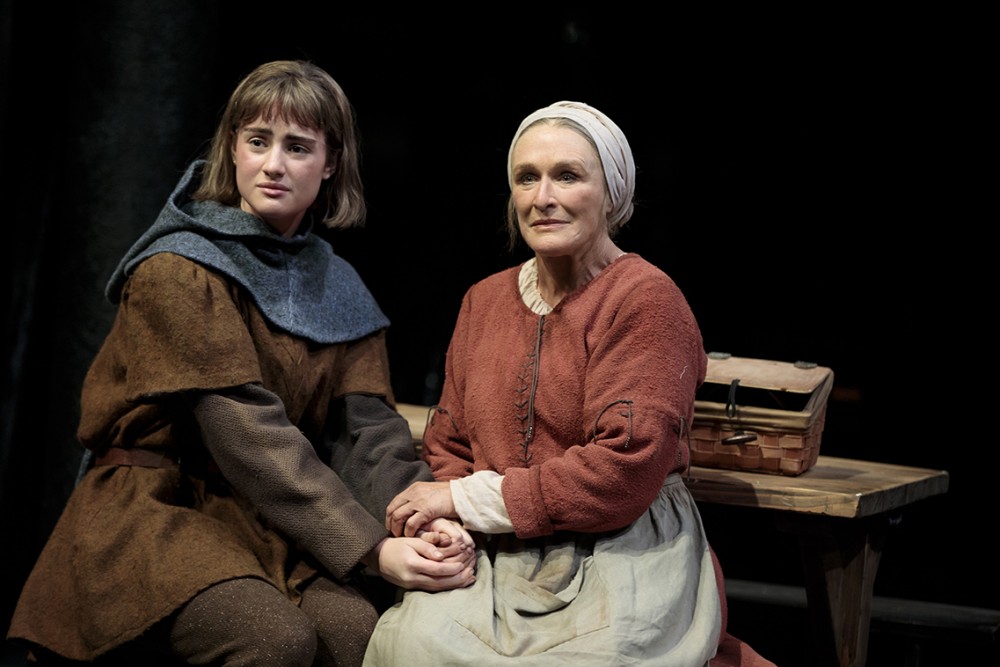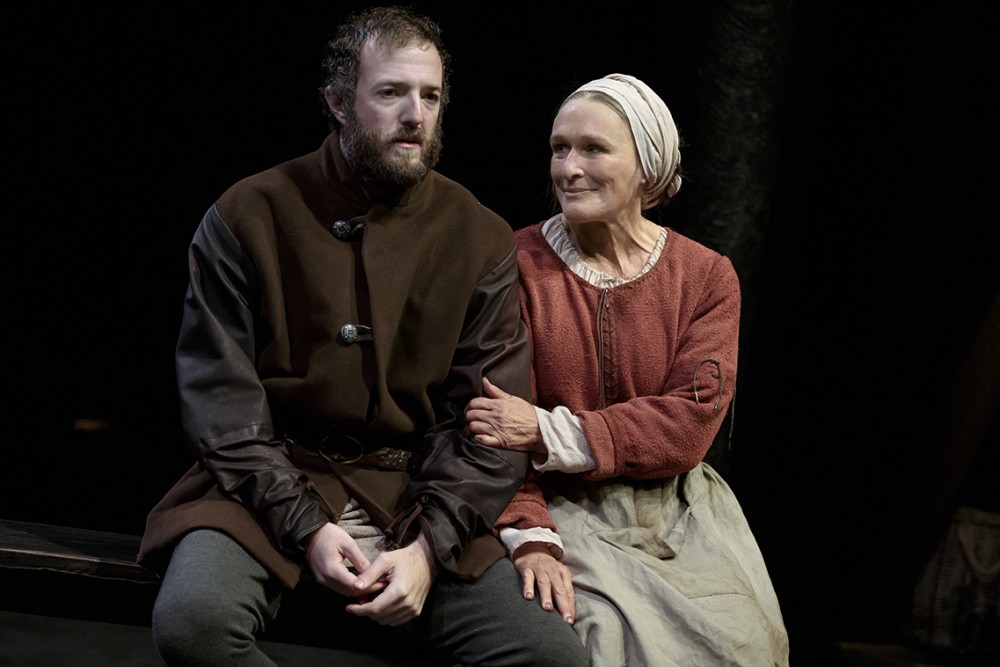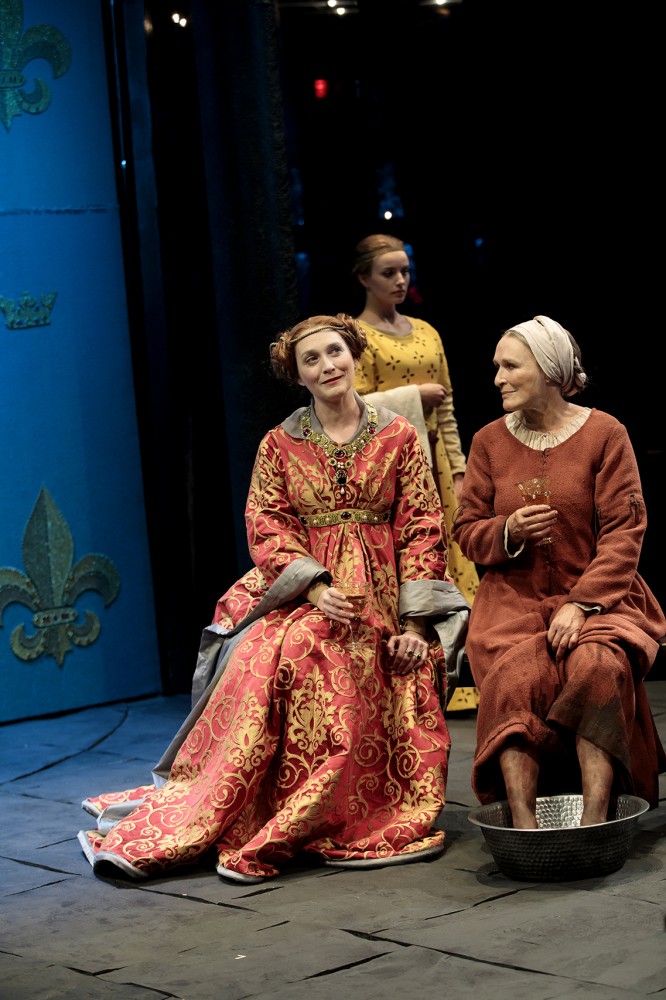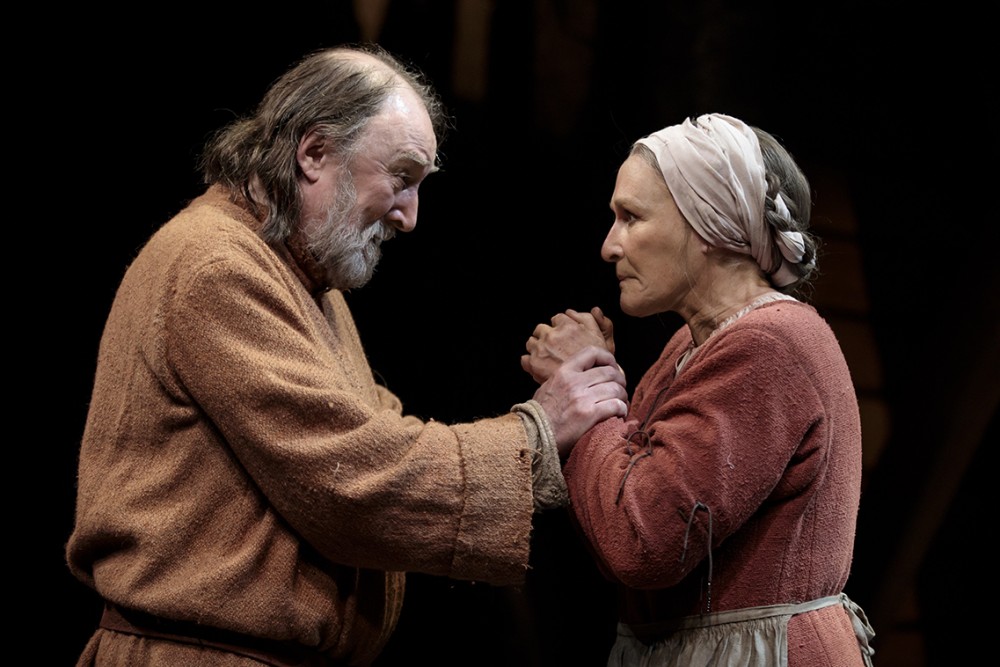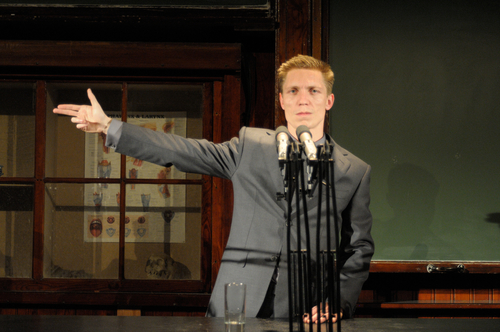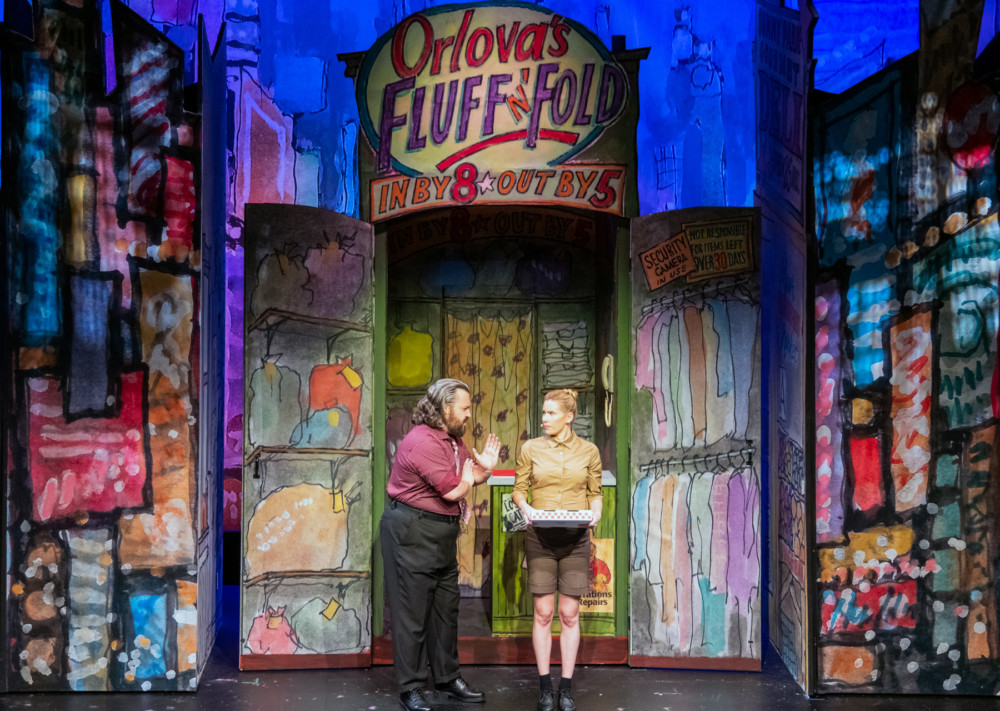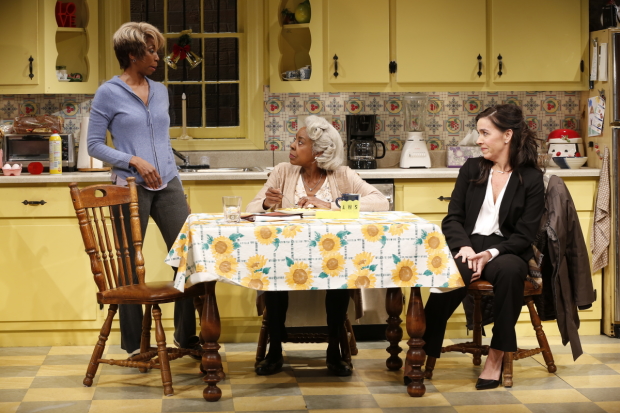by Carol Rocamora
No one commands the stage and screen quite like Glenn Close. Whether she’s descending a grand staircase (Sunset Boulevard) or boiling bunnies (Fatal Attraction), her charisma and intensity are palpable. Whatever role she’s playing, you admire her powerful presence and just can’t take your eyes off her.
And now she’s back on stage – at the Public Theater – casting her spell once again. This time, she’s playing (of all people) Joan of Arc’s mother in a new play by Jane Anderson, called Mother of the Maid. It’s an unusual role for an actress who typically portrays women of glamor and stature. At first you barely recognize her in the simple costume of a poor country peasant woman who runs a sheep farm with her husband in Domremy, France, circa 1425. But once she gets going in a confrontation with her rebellious 13-year-old daughter Joan (Grace Van Patten), you realize that the feisty role of Isabelle Arc (as she’s called in the program) is a perfect fit for this formidable actress.
In Anderson’s script, we see the story of Joan through Isabelle’s eyes – from the first moment when her daughter hears her voices, to Joan’s enlistment into the French army, to her ascent in the French court, to her celebrity status as a divinely ordained leader-in-battle, to her arrest and imprisonment, and ultimately to her burning at the stake. It’s a fresh new take on a historic story: the fascinating perspective of an ordinary mother who at first challenges her teenage daughter’s outlandish claims (“voices?!”), then eventually recognizes that “she’s special.” “I raised an extraordinary young woman!” Isabelle exclaims proudly, and supports Joan through her dramatic rise and fall until the tragic end.
Though the characters are dressed in Jane Greenwood’s period costumes, the dialogue is startlingly modern. This produces mixed results. On the one hand, playwright Anderson is painting a portrait of a typical mother-daughter relationship that is both recognizable and amusing – producing welcome audience laughter in some of the scenes. On the other hand, the contemporaneity of the language (with words like “OK” and “wonky” and phrases like “this house is a s—hole” and “this is scaring the s— out of me”, plus frequent use of the “f” word) is jarring and ultimately works against the gravity of the drama, at least for me.
Still, Close rises above these constraints and propels the play forward to its traumatic conclusion. The playwright’s research has unearthed interesting characters – like Jacques, Joan’s stern father who ultimately is driven blind by the horrific sight of his daughter’s burning – played convincingly by Dermot Crowley. Andrew Hovelson offers a colorful portrayal of Joan’s older brother Pierre, and Kelley Curran (who played the Lady of the Court on the matinee I attended), provides a sad and ironic portrait of a privileged mother who ultimately can neither identify with Isabelle’s plight nor help her save her daughter. Grace Van Patten’s Joan is particularly touching in her adolescent rebellion – one that eventually morphs into childlike terror. Matthew Penn directs the cast with a swift and sure hand.
But in the end, it’s Close’s show, and she plays with the steely determination of Brecht’s Mother Courage, who appears to be a model for this role (like Brecht, Anderson uses third person narration). The play’s final scene offers a moving historical coda, as Isabelle tells of her arduous journey to meet the Pope after Joan’s death. Old and ill, Isabelle nonetheless summons the strength to confront the Pontiff, declaring with defiance and parental pride: “My daughter was no heretic!”
Mother of the Maid, by Jane Anderson, directed by Matthew Penn, at the Public Theater through December 23


